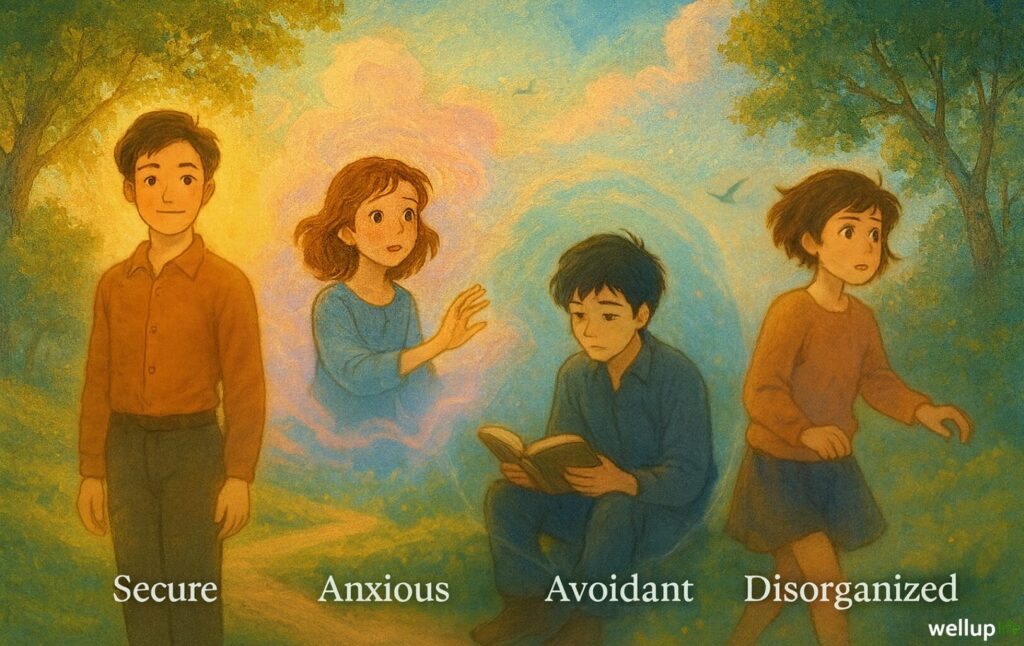Physical Address
304 North Cardinal St.
Dorchester Center, MA 02124
We independently evaluate and recommend products we believe will benefit our readers. If you purchase through links on this page, we may earn a commission.
Written By:

Published On: August 22, 2025
Last Updated On: January 25, 2026
Reviewed By:


Every relationship, no matter how strong, goes through difficult times. Arguments, misunderstandings, distance, or stress can sometimes make us feel lost and disconnected. In those moments, many of us look for guidance that brings not only practical advice but also peace to the heart.
For people of faith, the Bible has always been a source of wisdom and comfort. Its verses remind us of patience, forgiveness, and the power of love—values that are essential to overcoming challenges in any relationship. When facing relationship problems, turning to Bible verses can help us find strength, clarity, and hope.
In this article, we’ll explore some of the most powerful bible verses that offer guidance in times of conflict, healing for broken trust, and encouragement to build stronger bonds. These timeless words don’t just provide solutions; they also remind us that God’s love is the ultimate foundation for every relationship [1]Bible Verses About Relationships.
No relationship is perfect. Every couple, no matter how deeply in love, faces struggles at some point. These challenges may look different for each person, but the feelings of stress, frustration, or sadness are often the same. Understanding the most common relationship problems is the first step to finding peace and solutions. Below are some common relationship problems that people often struggle with.
One of the biggest struggles in any relationship is poor communication. When partners stop listening to each other or fail to express their feelings clearly, small misunderstandings can quickly turn into big arguments. Effective communication is the foundation of a healthy relationship [2]The Importance of Communication in Relationships.
Trust takes time to build, but can be broken in a moment. Jealousy, dishonesty, or betrayal can create deep cracks in a relationship. Rebuilding trust requires patience, forgiveness, and consistent honesty.
Money is another common source of conflict. Differences in spending habits, financial goals, or debt can lead to tension between partners. When not managed carefully, financial stress can affect emotional closeness and overall peace in a relationship [3]Money and Relationships.
In today’s busy world, many couples are forced to live apart due to studies, work, or family reasons. Long-distance relationships often struggle with loneliness, lack of physical presence, and communication gaps.
Sometimes, the problem doesn’t come from inside the relationship but from outside influences. Family disagreements, cultural expectations, or social pressure can create conflicts and test the bond between partners.
While these problems may feel overwhelming, they are not impossible to overcome. The Bible provides timeless wisdom and comfort to deal with these struggles, reminding us that love, patience, and faith can help heal even the toughest challenges.
When life feels heavy and relationships seem difficult, many people look for advice in books, friends, or even social media. While these sources can help, they often give temporary comfort. The Bible, however, provides timeless wisdom that speaks directly to the heart. It not only guides us in solving problems but also strengthens us spiritually.
At the center of every strong relationship is love—and the Bible describes love in its purest form. Verses like “Love is patient, love is kind. It does not envy, it does not boast, it is not proud” (1 Corinthians 13:4) remind us that true love is not just about feelings but about action, patience, and kindness [4]1 Corinthians 13:4-7.
When partners face anger, jealousy, or disappointment, the Bible teaches forgiveness and peace. For example, “Bear with each other and forgive one another if any of you has a grievance against someone. Forgive as the Lord forgave you” (Colossians 3:13). Such verses guide us to let go of bitterness and heal through forgiveness.
Even in the darkest moments, the Bible gives us hope. Instead of feeling alone in our struggles, we are reminded that God is with us and can help us rebuild broken trust and strengthen love.
This is why turning to Bible verses for relationship problems can be life-changing. They do not just solve issues on the surface—they transform hearts, encourage patience, and rebuild love on a deeper, spiritual level.
Below are 11 powerful Bible verses for relationship problems—explained simply and deeply, one by one. After each verse, you’ll find a short explanation and practical steps you can start using today.
Corinthians 13:4-5 — “Love is patient, love is kind. It does not envy, it does not boast, it is not proud. It does not dishonor others, it is not self-seeking, it is not easily angered, it keeps no record of wrongs.” [5]Corinthians 13:4-5
Many relationships break down not because love is absent, but because they lose patience with one another. True love shows itself in everyday actions—when frustration arises, when expectations clash, and when mistakes surface. This verse reminds us that love is not just an emotion, but a daily commitment to patience, kindness, and forgiveness.
Patience means holding back sharp words in moments of anger. Kindness means choosing gentleness even when hurt. And keeping no record of wrongs means letting go of the past instead of bringing it up every time you fight.
Practical Application:
Love and patience grow stronger through practice. Each time one chooses to forgive quickly, speak kindly, or show understanding, the relationship becomes more resilient. Over time, these small acts build a foundation where trust, peace, and true intimacy flourish.
Colossians 3:14 — “And over all these virtues put on love, which binds them all together in perfect unity.” [6]Colossians 3:14
Every relationship has its ups and downs—moments of joy and moments of tension. What keeps everything held together is not just patience, kindness, or forgiveness on their own, but the presence of love. This verse beautifully explains that love is like the thread that weaves all other virtues into harmony. Without it, even the best intentions can fall apart.
In practical terms, love acts like glue. When two people disagree, love helps them remember they are on the same team. When hurtful words are spoken, love makes forgiveness possible. When distance or silence grows, love bridges the gap and draws hearts back together.
Practical Application:
Love doesn’t mean problems will disappear, but it ensures that problems are faced together, not against each other. That’s what creates unity—the sense of being bound together no matter what storms may come.
Proverbs 3:5–6 — “Trust in the Lord with all your heart and lean not on your own understanding; in all your ways submit to Him, and He will make your paths straight.” [7]Proverbs 3:5–6
In relationships, one of the biggest struggles couples face is trust—not only in each other but in the direction their relationship is headed. This verse teaches that when life feels uncertain and when human understanding falls short, placing full trust in God brings clarity and peace.
Sometimes, arguments spiral because each person holds tightly to their own view, convinced they are right. Leaning only on personal understanding often leads to pride, defensiveness, or miscommunication. But when both partners step back and surrender the situation to God, they invite wisdom that goes beyond emotions or ego.
Practical Application:
True unity grows when trust is placed in God first. He has a way of straightening paths that once seemed tangled, turning confusion into direction, and replacing doubt with peace.
Hebrews 13:4 — “Marriage should be honored by all, and the marriage bed kept pure, for God will judge the adulterer and all the sexually immoral.” [8]Hebrews 13:4
This verse emphasizes the sacredness of marriage and the importance of faithfulness. A strong relationship is built not just on love and companionship, but also on trust, loyalty, and respect for the promises made to one another. When marriage is honored, it becomes a safe space where both partners can grow emotionally, spiritually, and even through life’s challenges.
Faithfulness goes beyond physical loyalty—it also includes being emotionally present, speaking honestly, and prioritizing the relationship above outside distractions. When partners honor their bond, they create a foundation where love thrives and security blossoms.
Practical Application:
Honoring marriage doesn’t mean perfection, but it does mean choosing loyalty and love daily. In that choice, both partners create a bond that stands strong against life’s trials.
Ephesians 4:32 — “Be kind and compassionate to one another, forgiving each other, just as in Christ God forgave you.” [9]Ephesians 4:32
Every relationship, no matter how strong, will encounter hurt—whether through misunderstandings, careless words, or unmet expectations. What often determines the strength of a relationship is not the absence of mistakes, but the willingness to forgive. This verse reminds us that kindness, compassion, and forgiveness are at the heart of healthy love.
Forgiveness is not about ignoring the pain or pretending the hurt didn’t happen. It’s about choosing to release resentment, so the relationship has room to heal and move forward. Just as God forgave us, even when we didn’t deserve it, couples are called to extend grace to each other.
Practical Application:
When forgiveness is embraced, relationships become stronger, hearts grow softer, and love finds its way back into even the toughest situations. Healing begins where forgiveness is practiced.
Matthew 18:21–22 — “Then Peter came to Jesus and asked, ‘Lord, how many times shall I forgive my brother or sister who sins against me? Up to seven times?’ Jesus answered, ‘I tell you, not seven times, but seventy-seven times.’” [10]Matthew 18:21–22
This passage is a powerful reminder that forgiveness is not meant to be limited or counted. In relationships, it’s easy to think, “I’ve forgiven enough times; now I’m done.” But Jesus teaches here that love requires a spirit of continuous forgiveness—not keeping score, but keeping the bond alive.
Relationships often struggle because of repeated mistakes—forgetting something important, raising a harsh tone, or falling short of expectations. While patterns need to be addressed, the heart of this verse is about letting go of grudges and choosing grace over bitterness. Forgiveness doesn’t mean tolerating unhealthy behavior, but it does mean keeping the door open for healing, instead of letting resentment build walls.
Practical Application:
When love is rooted in grace, relationships thrive even through imperfections. Forgiving “seventy-seven times” is not about numbers—it’s about creating a relationship where love is always stronger than resentment.
Romans 12:18 — “If it is possible, as far as it depends on you, live at peace with everyone.” [11]Romans 12:18
This verse is a gentle but profound reminder that peace in relationships isn’t always about controlling outcomes—it’s about doing our part. Sometimes conflicts arise that feel impossible to resolve, especially when both sides see things differently. What Paul reminds us here is that we are responsible for our own actions, attitudes, and responses. Even if we can’t change others, we can choose peace from our side.
In relationships, this means choosing patience over anger, calm over argument, and understanding over stubbornness. Living at peace doesn’t mean avoiding hard conversations or pretending problems don’t exist. It means approaching those conversations with humility, love, and a heart that seeks resolution instead of victory.
Practical Application:
When both partners live with this mindset, the relationship becomes a place of calm rather than chaos. And even when peace seems difficult, doing your part ensures your heart stays light, free of bitterness, and open to love.
James 1:19 — “My dear brothers and sisters, take note of this: Everyone should be quick to listen, slow to speak and slow to become angry.” [12]James 1:19
This verse feels like a golden key for healthy relationships. So often, conflicts arise not because the issue is too big, but because listening is too little. When one person feels unheard, frustration builds, and small misunderstandings turn into full-blown arguments.
James reminds us that strong relationships are built on patience, empathy, and thoughtful communication. Listening first allows us to understand where the other person is coming from, rather than rushing to defend ourselves. Speaking slowly means choosing words with care, avoiding the sharp ones that leave lasting wounds. Being slow to anger gives space for compassion to rise above frustration.
Practical Application:
When this verse becomes a habit in daily life, relationships shift from reactive to reflective, from defensive to understanding. It creates a safe space where both partners feel valued and respected, even in moments of disagreement.
1 Peter 4:8 — “Above all, love each other deeply, because love covers over a multitude of sins.” [13]1 Peter 4:8
This verse beautifully captures the heart of any lasting relationship. No couple is perfect. There will always be mistakes, misunderstandings, or moments where hurtful words are spoken in frustration. Yet, Peter reminds us that deep love—not shallow, conditional affection, but love rooted in patience, grace, and kindness—has the power to forgive and heal.
“Love covers a multitude of sins” doesn’t mean we ignore or excuse hurtful actions. Instead, it means choosing love over bitterness. It means extending forgiveness instead of keeping score. It means remembering that the foundation of a strong relationship isn’t perfection, but commitment and compassion.
Practical Application:
When couples live out this verse, they build a safe space where both partners know they are loved, even in their imperfections. Love becomes not just a feeling, but a daily choice that strengthens the relationship over time.
Psalm 147:3 — “He heals the brokenhearted and binds up their wounds.” [14]Psalm 147:3
This verse is a gentle reminder that no matter how deep the pain in a relationship, healing is always possible. Many times, relationships go through seasons of heartbreak, betrayal, disappointment, or even the silence of growing apart. In those moments, it’s easy to feel like the wound is too deep ever to close. But Psalm 147:3 assures us that God steps into those broken spaces, offering comfort and restoration.
In relationships, both partners may carry hidden hurts, often from past experiences or even from each other. This verse calls us to lean on God’s healing power rather than trying to carry the weight of pain alone. Healing doesn’t always happen overnight, but with love, patience, and faith, brokenness can turn into a stronger bond.
Practical Application:
When couples allow God to “bind up the wounds,” the scars become reminders not of defeat, but of resilience, grace, and growth together.
Isaiah 41:10 — “So do not fear, for I am with you; do not be dismayed, for I am your God. I will strengthen you and help you; I will uphold you with my righteous right hand.” [15]Isaiah 41:10
This verse speaks directly to those moments in a relationship when fear and uncertainty creep in. Every couple faces storms—financial struggles, health worries, trust issues, or future uncertainties. Fear often makes people either withdraw or become defensive, creating distance in the relationship. But God gently reminds us here: “Do not fear, I am with you.”
The beauty of this verse is that it shifts the focus from fear to faith. Instead of trying to control everything, it invites couples to lean on God’s strength. In relationships, this means not carrying the burden alone, but remembering that you’re supported by something greater than yourselves.
Practical Application:
When couples embrace this verse, they learn to stand together, not in fear of what may come, but in confidence that God’s strength will carry them through. This reassurance builds unity, peace, and resilience in the relationship.
These Bible verses remind us that love, forgiveness, patience, and trust in God are at the very heart of healthy relationships. They show us that challenges are not the end of the road, but opportunities to grow closer to one another and to God. Whether it’s learning to forgive, finding strength in difficult times, or choosing love over anger, the Bible offers timeless wisdom for every couple.
But verses alone are not enough—they must be lived out daily in our actions, words, and choices. In the next section, we’ll explore how to take these powerful truths from the Bible and apply them in practical, everyday ways that truly transform our relationships.
Reading Scripture is powerful, but the real transformation comes when we begin to live its wisdom every day. Relationships grow stronger not only by knowing the right words but by turning those words into habits, choices, and attitudes that reflect love and grace. Here are some ways to apply these verses in your daily life:
Take just a few minutes each morning to meditate on a verse that speaks to your current relationship season. For example, if forgiveness is needed, reflect on Matthew 18:21–22. If you’re seeking patience, focus on James 1:19. This sets the tone for how you’ll respond to challenges throughout the day.
When disagreements arise, remember verses like Ephesians 4:32 about being kind and compassionate. Instead of reacting quickly in anger, pause, take a breath, and choose words that build up rather than tear down. This shift alone can change the entire direction of a conversation.
Forgiveness doesn’t mean forgetting, but it does mean letting go of the weight of bitterness. Keep Colossians 3:14 in mind—choosing love above all. When your partner makes mistakes, extend grace, remembering that you can also make mistakes, and also you need grace from time to time.
Bring the verses into your discussions with your partner. Not in a way that preaches, but in a way that encourages. For example, gently saying, “Let’s try to live at peace, like Romans 12:18 reminds us,” can help both of you reset the tone during a conflict.
Sticky notes on the mirror, reminders in your phone, or a note on the fridge can be small but powerful ways to keep Scripture present in your daily rhythm. These little nudges help align your heart and actions with the wisdom of God’s Word.
When one of you feels brokenhearted or overwhelmed, lean on verses like Psalm 147:3. Sit together in prayer or simply offer a comforting presence. Allow God’s healing to flow through your support for one another.
1 Peter 4:8 teaches us that love is not just a feeling—it’s a choice to forgive, to support, and to put your partner’s well-being above your pride. Each day, ask yourself: How can I choose love in my words and actions today?
Applying verses doesn’t mean being perfect; it means inviting God’s wisdom into the messy, real moments of everyday life. With patience, prayer, and intentional choices, these verses can reshape not just how you handle problems, but how you grow together in love.
These mindful habits may feel small—but over time, they shape the entire atmosphere of your relationship. Scripture is not just meant to be quoted. It’s meant to be lived. And when we do, God’s peace, wisdom, and love begin to overflow into our homes, our hearts, and our everyday moments.
Now that we’ve looked, how can we apply these bible verses in our daily life? Let’s take a moment to answer some of the most common questions people have when trying to bring God’s Word into their relationships.
The Bible teaches that broken relationships can be healed through love, forgiveness, and humility. Verses like Psalm 147:3 remind us that God heals the brokenhearted, while Ephesians 4:32 encourages us to be kind and forgiving. True repair takes time, prayer, and consistent effort from both partners.
One of the most powerful verses is 1 Corinthians 13:4–7, which describes love as patient and kind. This scripture reminds couples that love is more than feelings—it’s choosing patience, kindness, and forgiveness daily.
Yes, prayer invites God into the relationship and helps couples find peace and guidance. Praying together strengthens emotional bonds and gives clarity during conflict. While prayer alone may not solve every issue, it prepares the heart to forgive, listen, and love more deeply.
There is no strict rule, but reading the Bible together regularly—whether daily, weekly, or even a few times a month—helps couples grow spiritually and emotionally. Even short readings, followed by reflection, can strengthen unity and provide fresh guidance for challenges.
Reading verses online is powerful, but nothing replaces holding the Bible in your hands, reflecting on its words daily, and letting God’s truth guide you through both struggles and joys. If you’re ready to strengthen your relationship with God and your loved ones, investing in a good Bible is one of the most meaningful steps you can take.

⭐ 4.7/5 · 3560+ Ratings
Category: Spiritual Wisdom, Faith, Christian Living
Description: The ESV Church Bible offers a clear, trustworthy translation in a timeless design—perfect for study, worship, and sharing God’s Word to strengthen faith and relationships.
Buy On AmazonRelationships are never perfect—they come with challenges, misunderstandings, and moments of pain. But the good news is, God has not left us without guidance. The Bible is filled with wisdom that teaches us how to love, forgive, listen, and rebuild trust when things get tough.
When we read verses like Corinthians 13:4–7 about patience and kindness, or Colossians 3:13 about forgiveness, we realize that true love isn’t just about feelings—it’s about daily choices. Choices to forgive when we’re hurt, to listen instead of reacting in anger, to be kind even when it’s not easy, and to trust that God can heal brokenness.
But remember: applying scripture is just as important as reading it. The Bible becomes powerful in relationships when we live it out—through active listening, small acts of kindness, honesty, boundaries, and consistent prayer together.
No matter where you are in your relationship journey, know this: God cares about your heart and your connection with others. By leaning on His Word and practicing these lessons daily, you can transform conflict into peace and weakness into strength.
Start small today—pick one Bible verse from this article, reflect on it, and apply it in your relationship. Step by step, with God’s wisdom, you’ll build a bond that is stronger, kinder, and rooted in love.
Christian Life Coach & Ministry Educator
Hannah Wells is a Christian life coach and ministry educator who helps readers connect Scripture to daily life. With over a decade of experience guiding spiritual growth, she writes to inspire practical love, compassion, and faith in action.

Reviewed By:



Reviewed By:








Reviewed By:








Reviewed By:








Reviewed By:








Reviewed By:



Reviewed By:



Medically Reviewed By:



Reviewed By:

Wellup Life is your space for personal growth, wellness, and mindful living. From self-improvement and productivity to spirituality and relationships, we share practical insights and timeless wisdom to help you live with clarity, balance, and purpose.
Copyright © 2024 – Wellup Life — All rights reserved
